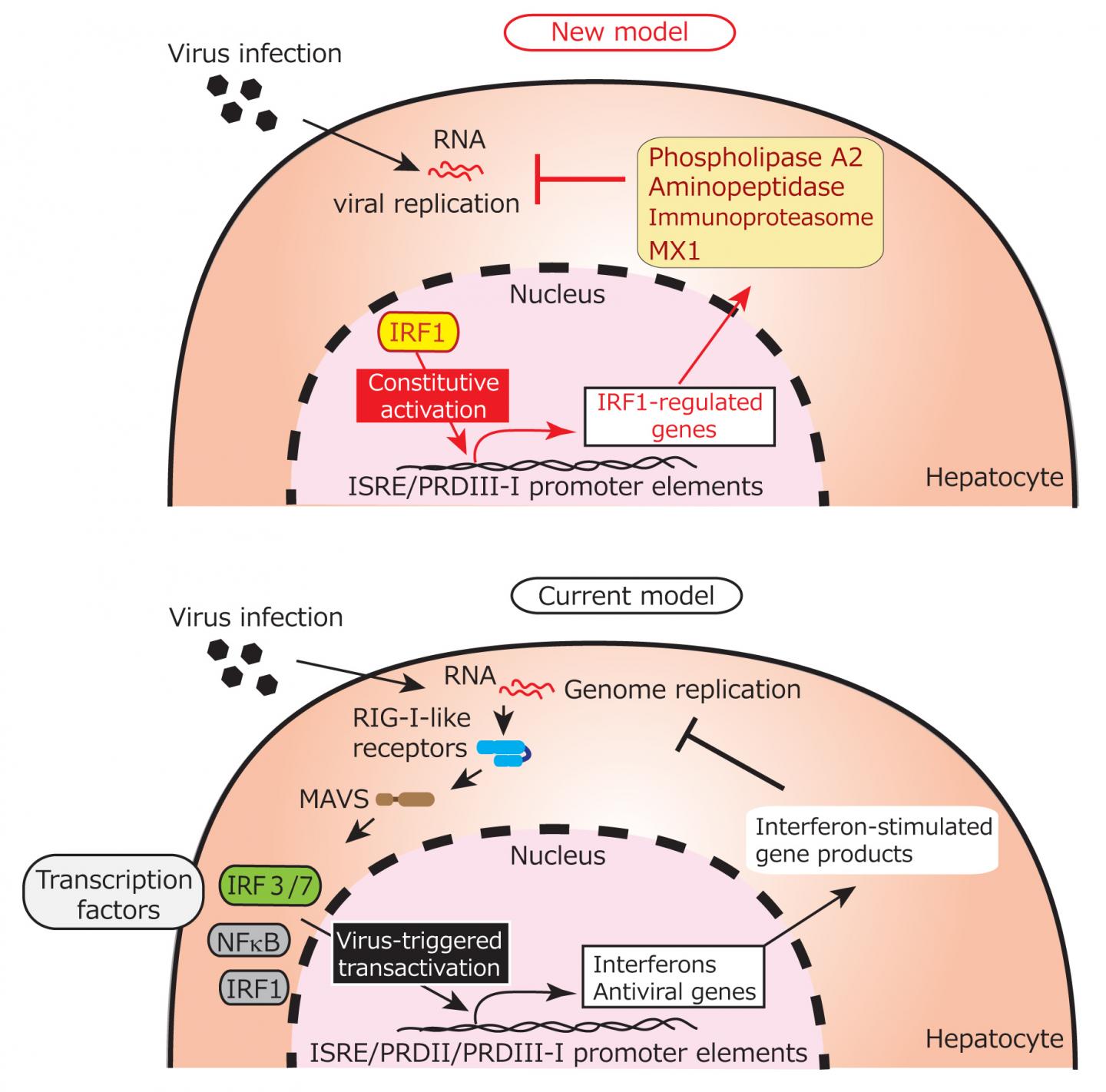Results have implications for cellular responses to hepatitis, dengue and Zika

Credit: Daisuke Yamane, D.V.M., Ph.D., Tokyo Metropolitan Institute of Medical Science
Chapel Hill, NC – Liver cells have an innate resistance to RNA viral infections like hepatitis A, dengue and Zika thanks to a protein called IRF1, according to researchers at the University of North Carolina at Chapel Hill (UNC) and Tokyo Metropolitan Institute of Medical Science (TMIMS). When present in liver cells, this IRF1 protein regulates RARRES3, an enzyme that when expressed in cells where hepatitis A virus is trying to set up shop, will attack the virus. These results were published in Nature Microbiology.
“We discovered that IRF1 is a master regulator of intrinsic resistance to viruses in liver cells,” said Stanley M. Lemon, M.D., the study’s co-author and a professor of medicine, microbiology and immunology in the UNC School of Medicine. “If present in liver cells, IRF-1 ensures that RARRES-3, an enzyme that acts on lipids, makes the cell hostile or restrictive to hepatitis A infection.”
In 2019 alone, there have been several outbreaks of hepatitis A throughout the United States, including Florida, Ohio and California. Hepatitis A infection occurs through consuming contaminated food and water, sex, and injection drug use. The infection can be fatal. There is a very effective and safe two-shot vaccine for hepatitis A virus. However, people who have not been immunized remain at risk for infection.
“We also found that while expressing RARRES3 is protective against hepatitis A infection, it does not help liver cells resist an attack from other RNA viruses like dengue,” said Daisuke Yamane, D.V.M., Ph.D., the study’s co-author who was previously a research associate at UNC and is now chief researcher at the Tokyo Metropolitan Institute of Medical Science’s Viral Infectious Diseases Project. “In future studies, we hope to further investigate this innate immunity of liver cells to regulate infection through IRF1 and to better understand why IRF1 sparks certain cellular functions to guard against particular RNA viruses.”
###
This research was funded by the Japan Society for the Promotion of Science (JSPS) through grant numbers JP16H07462, JP17H05070, JP18K05987 and JP15K19109; the Program for Basic and Clinical Research on Hepatitis from the Japanese Agency for Medical Research and Development through grant numbers 16fk0210108h0001 and JP18jk0210014; and the U.S. National Institutes of Health’s National Institute of Allergy and Infectious Diseases (NIAID) through grant numbers AI103083, AI109965 and AI131685.
The mission of UNC’s Institute for Global Health & Infectious Diseases is to harness the full resources of the University and its partners to solve global health problems, reduce the burden of disease, and cultivate the next generation of global health leaders. Learn more at http://www.
Media Contact
Morag MacLachlan
[email protected]
Original Source
https:/
Related Journal Article
http://dx.




